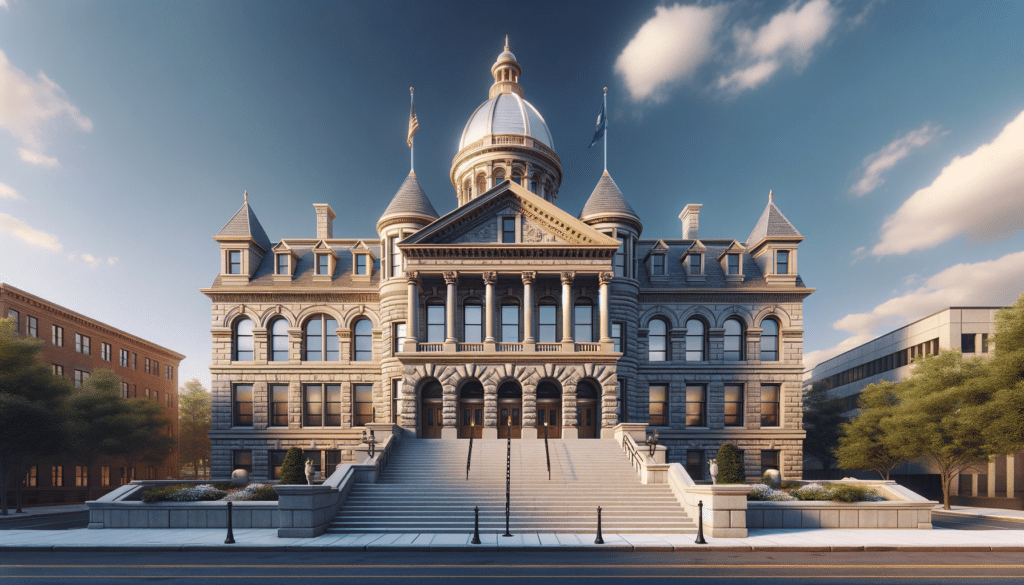Physical Address
304 North Cardinal St.
Dorchester Center, MA 02124
Physical Address
304 North Cardinal St.
Dorchester Center, MA 02124

Are you navigating the choppy waters of divorce in Connecticut? If so, you’re likely asking, “How long does this process actually take?” In Connecticut, the timeline isn’t set in stone.
Several factors come into play, from the complexity of your case to how well you and your soon-to-be ex-spouse cooperate. This article sheds light on the Connecticut divorce timeline.

We’ll explore the steps involved and the factors that can speed up or slow down the process. Whether you’re just starting out or are knee-deep in legalities, this guide offers valuable insights. Stay with us to understand the journey ahead in the Constitution State.
In Connecticut, there is a mandatory waiting period of 90 days before a judge can sign the final divorce decree. This waiting period begins on the “Return Date” when the original divorce papers are filed.
However, there are situations where the waiting period can be waived.
If the spouse being served with the divorce papers, known as the Respondent, has not entered an “Appearance” in the case and there is a written settlement agreement, the spouse filing for divorce, known as the Plaintiff, can file a motion to waive the 90-day waiting period. This allows the divorce process to move forward more quickly.
| Type of Divorce | Waiting Period |
|---|---|
| Uncontested Divorce with a Settlement Agreement | 90 days |
| Non-Adversarial Divorce (Marriages of Nine Years or Less with No Children) | 30 days |
| Contested Divorce | Varies depending on court backlogs and complexity of the case |
The time it takes to get a divorce doesn’t just depend on the waiting period. Other things like how complex your case is, how well you and your spouse work together, and if you have kids, also play a big part.
All these can affect how quickly the court can finish your divorce. It’s a good idea to talk to a divorce lawyer who knows a lot about this. They can help you understand how the waiting period and these other things might affect your own divorce.
If you’d like to find out about the costs involved in a Connecticut divorce, check out our article How Much Does a Divorce Cost in Connecticut.
When it comes to the length of a divorce in Connecticut, it can vary depending on the type of divorce.
An uncontested divorce, where both spouses agree on all the terms of the divorce, generally takes less time to finalize. After the mandatory waiting period of 90 days, an uncontested divorce can be completed relatively quickly.
On the other hand, contested divorces, where the spouses cannot reach an agreement and require a trial, can take significantly longer. These cases involve a more complex legal process and may require additional court hearings and proceedings.
Due to court backlogs and the need to gather evidence and present arguments in court, contested divorces can take over a year to reach a resolution.
In addition to uncontested and contested divorces, Connecticut also offers non-adversarial divorces for marriages of nine years or less with no children. These divorces can be finalized after 30 days from signing the joint petition, making them a quicker option for eligible couples.
| Divorce Type | Timeline |
|---|---|
| Uncontested Divorce | After the mandatory waiting period of 90 days |
| Contested Divorce | Over a year, depending on court backlogs and complexities |
| Non-adversarial Divorce | After 30 days from signing the joint petition |

Several factors can affect the duration of a divorce in Connecticut. Understanding these factors can help you manage your expectations and navigate the process more effectively.
Divorces involving complex financial situations or significant assets can take longer to resolve. Valuing and dividing assets, such as real estate, business interests, investments, and retirement accounts, requires careful analysis and negotiation.
Additionally, determining spousal support and child support amounts may require expert evaluations or present unique challenges.
When spouses cannot agree on important issues such as child custody, visitation, division of assets, or support, the divorce becomes contested. Resolving these disputes may require extensive negotiations, mediation, or even a trial.
The litigation process can significantly lengthen the timeline, as court schedules and the availability of judges can impact the speed at which the case progresses.
High conflict between spouses can also prolong the divorce process. Disputes, disagreements, and the inability to communicate effectively can slow down negotiations and impede the resolution of key issues. In these cases, it can be a huge help to work with professionals, such as mediators or therapists, who specialize in managing high-conflict divorces.
Divorces involving significant assets often require more time to complete. The complexity of valuing and dividing assets, as well as addressing tax implications and potential financial consequences, can contribute to a longer timeline.
You’ll likely need to engage the services of experienced professionals, such as forensic accountants or financial advisors, to assist in navigating these intricate financial matters.
| Factors | Impact on Timeline |
|---|---|
| Complex Divorce Cases | Can prolong the process due to the need for extensive analysis and negotiation of complex financial situations. |
| Contested Divorces | Can significantly lengthen the timeline, as resolving disputes may require court intervention and trial. |
| High-Conflict Divorces | Can impede negotiations and prolong the process due to ongoing disputes and communication challenges. |
| Divorce with Significant Assets | Can add complexity to the process, requiring careful valuation and division of substantial assets. |
While navigating the divorce process in Connecticut can be challenging, there are steps you can take to make things go faster.
One of the most effective ways to speed up your divorce is to opt for an uncontested divorce. This eliminates the need for lengthy negotiations and court hearings, significantly reducing the time and cost involved.
Efficient and cooperative proceedings can also help expedite the divorce process. This means being responsive to your attorney’s requests and promptly providing any necessary documentation or information.
By being organized and proactive, you can help your attorney move your case forward more quickly.
Find out more about the divorce process in How To File For Divorce in CT.
Opting for an uncontested divorce can have numerous benefits. In addition to saving time, an uncontested divorce often results in lower legal fees and less emotional strain compared to a contested divorce.
By working together with your spouse to reach a settlement, you can maintain control over important decisions and actively participate in shaping the outcome of your divorce.
| Benefits of Uncontested Divorce | Explanation |
|---|---|
| Saves time | An uncontested divorce typically takes less time than a contested divorce due to the absence of prolonged court proceedings and negotiations. |
| Reduces costs | With fewer court appearances and less need for extensive legal representation, uncontested divorces are often more cost-effective. |
| Lowers emotional stress | By avoiding contentious disputes, an uncontested divorce can minimize emotional strain and provide a more amicable resolution. |
The process can become more complicated and time-consuming when going through a divorce in Connecticut and there are children involved. Child custody, co-parenting arrangements, and child support are key elements that need to be addressed.
Connecticut courts prioritize the best interests of the children when making decisions regarding child custody and parenting plans.
When you’re going through a divorce, you might have to go to a case management conference. This is a meeting with the people involved, their lawyers (if they have them), and a judge or magistrate. The goal is to make a plan for the divorce process.
At this conference, the judge will talk about different parts of the case. This can include things like temporary arrangements for kids, temporary support for a spouse, and whether you need more information or expert opinions.
This is a chance for both sides to share their issues, sort out any problems, and try to find a solution.
The case management conference is key in the divorce. It helps make the process smoother and makes sure everyone has the right info and papers.
It’s also a time to think about how to settle things. You can talk about using mediation or collaborative law. These options can help avoid a long, expensive trial.
The time it takes to get a divorce in Connecticut can change based on different things.
There’s a 90-day wait before a judge can finish a divorce. But if the divorce is contested or complicated, it could take longer. If kids are involved, that might also make the process take more time.
To end a divorce in Connecticut, you need to think things through and have a lawyer. A divorce attorney with experience can guide you and look after your rights. They’ll help you understand the legal system and make sure your needs are met.
There are also groups that can help you during this tough time. Legal aid can give you advice and support. Remember, divorce can be hard emotionally and financially, so it’s important to get the help you need.
To see how the timeline of a divorce in Connecticut compares to how long it takes in other states, check out our articles about how long does a divorce take in New York and the divorce timeline in Rhode Island.